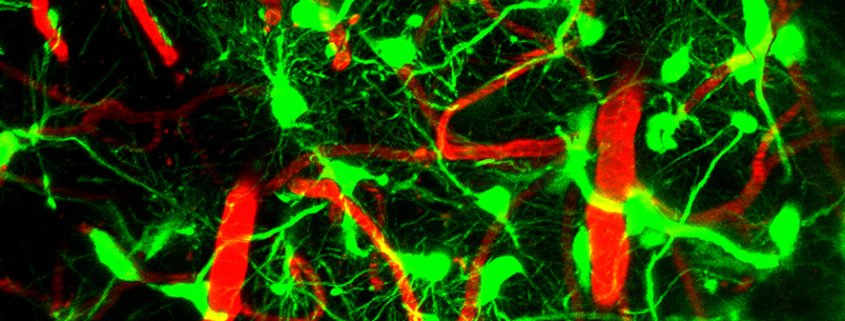Primary brain tumors, particularly glioblastoma, grow aggressively and are incurable until today. We have discovered novel mechanisms of tumor biology and treatment resistance that are related to the emerging field of “Cancer Neuroscience”: tumor cells hijack neural machanisms to thrive, and communicate with neurons of the normal brain. Brain tumor resistance against established therapies seems related to these mechanisms. However, it is particularly not clear how vivid intercellular communication patterns via calcium waves (Hausmann et al., Nature 2023) exactly contribute to resistance, and how this can be overcome.
The aim of this PhD project is to further explore how calcium communications patterns in glioma networks change after treatment (surgery, radiotherapy, chemotherapy), how they reflect the therapy resistance biologically, and which molecular mechanisms are in place. Calcium communication inhibiting compounds will be further tested and combined with therapy to overcome treatment resistance. For this project, our two-photon in vivo microscopy model and further manifold state-of-the-art techniques will be taught and used, and further development of techniques and concepts are encouraged and supported.
As part of the Comprehensive Research Center (CRC) 1389 “Unite Glioblastoma” network, our group is interested in translational glioblastoma research aiming to bring insights from basic research models to clinical applicability as new treatments for patients. The Winkler Lab is internationally renowned for developing the field of Cancer Neuroscience, with a methodological focus on intravital imaging (Osswald et al., Nature 2015, Weil et al., Neuro Oncology 2017, Venkataramani et al., Nature 2019, Venkataramani et al., Cell 2022, Hausmann et al., Nature 2023).
For more information and the full job posting, click here.

 UNITE
UNITE